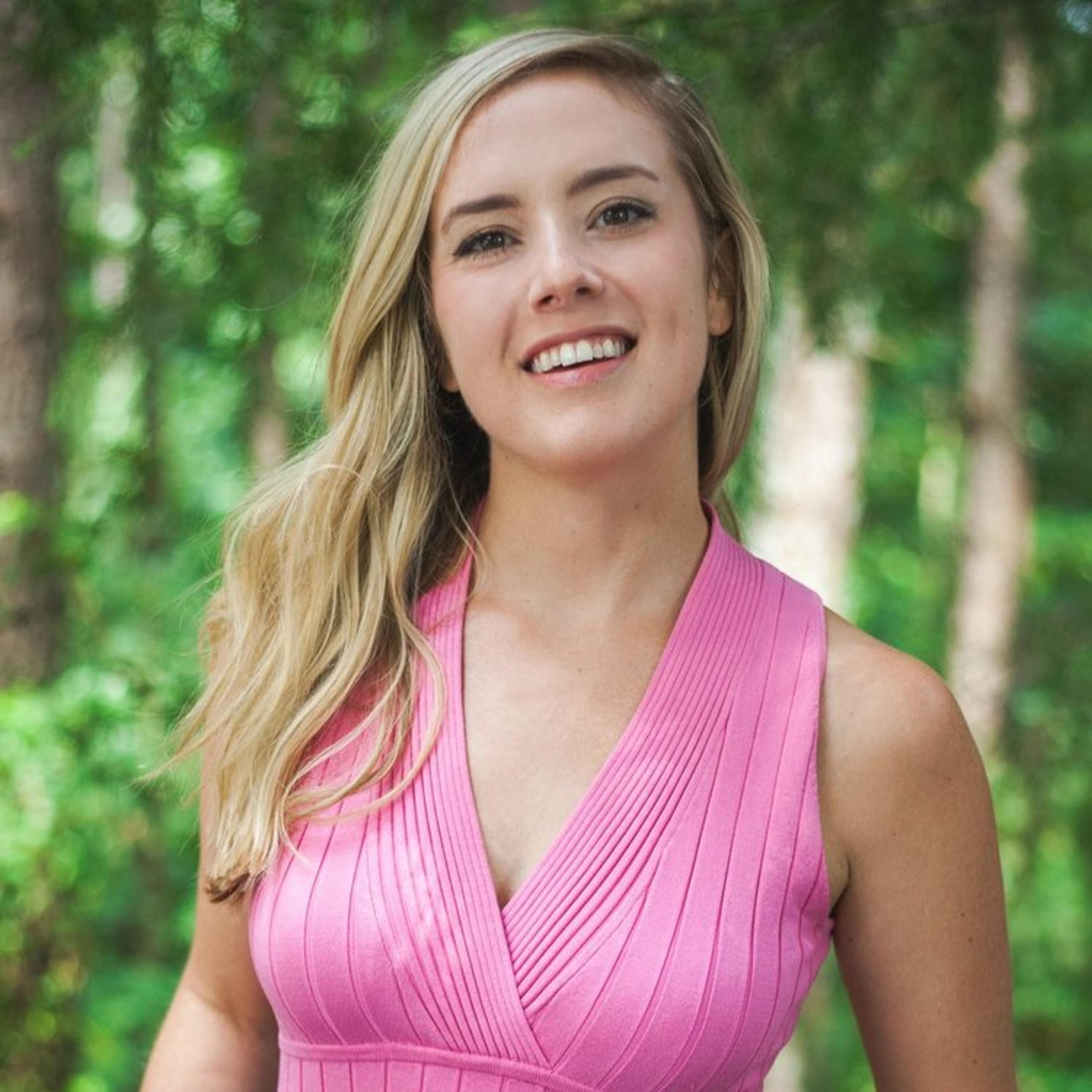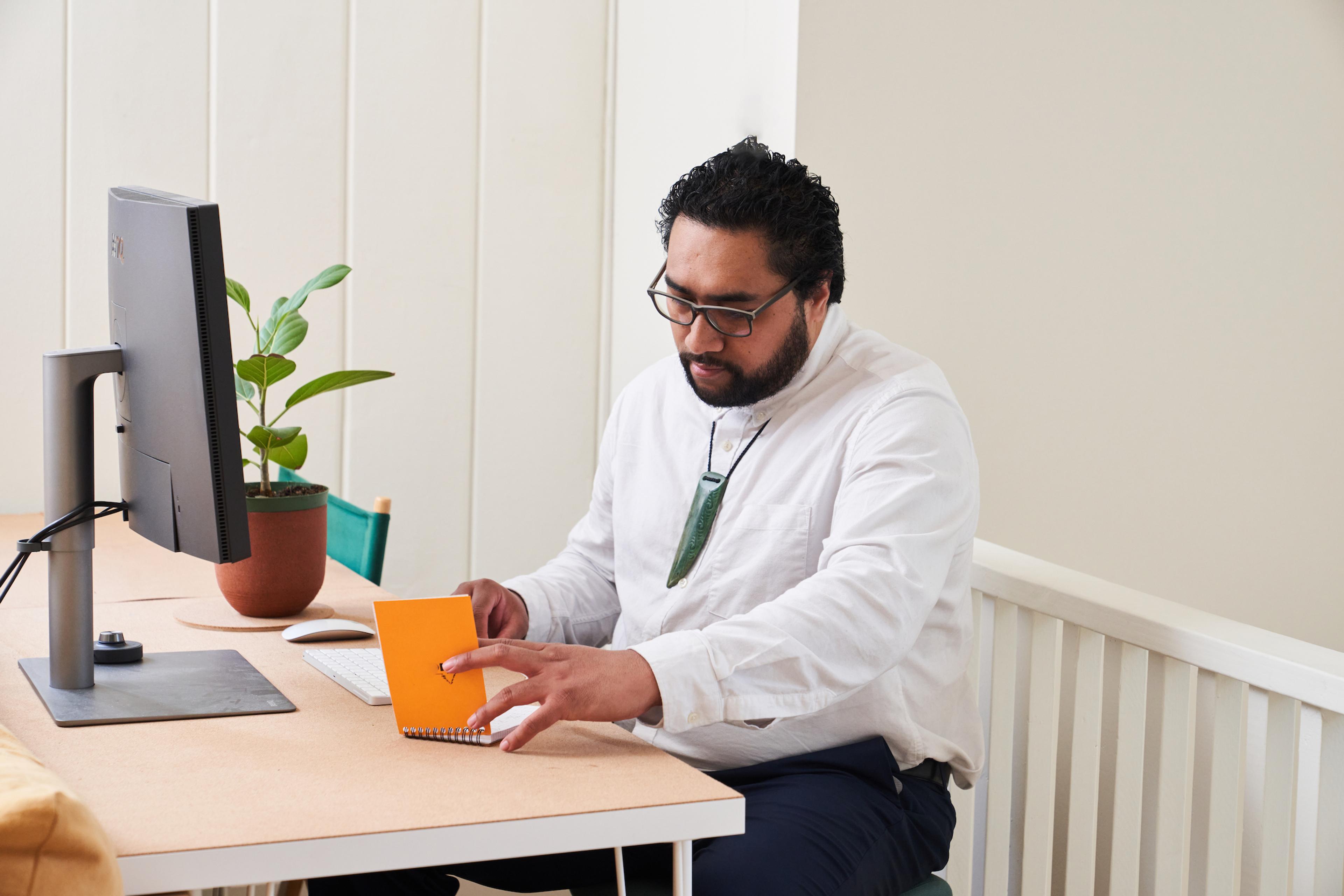
Like the medical world, the field of nutrition and dietetics encompasses a vast variety of niches and specialties. I have dietitian colleagues who are experts in almost every area of nutrition you could imagine, including diabetes, kidney health, food allergies, cancer treatment, gut health, and (like me) eating disorders. Just like your gynecologist isn’t also going to be your cardiologist, a dietitian who specializes in food allergies isn’t going to be the best choice to treat an eating disorder. In that case, you need to see an eating disorder dietitian.
Specialties and training aside, dietitians can also have varying philosophies on nutrition, weight, and health, and this perspective has an impact on their work with clients. When seeking treatment for an eating disorder, you’ll want to work with someone whose philosophy is aligned with recovery, which is another reason why it’s essential to seek out an eating disorder dietitian. Read on to learn more about the role of an eating disorder dietitian, why it’s key to include one in your care, what makes a dietitian equipped to work with you, and some tips to consider in your search.
What we mean when we say “eating disorder dietitian”
“An eating disorder dietitian is someone who has the skill set, training and philosophical alignment to work with someone through their eating disorder recovery,” explains Equip Director of Nutrition Erin Reeves, RD. “They’re familiar with all eating disorders and have robust knowledge in how to work through nutritional and therapeutic challenges associated with recovery work.”
Regardless of the level of care you choose (residential, inpatient, partial hospitalization, intensive outpatient, or outpatient), eating disorder dietitians are a necessary part of a multidisciplinary team. This team may also include a doctor, therapist, psychiatrist, support people (like parents or spouses), and sometimes a recovery coach (learn more about multidisciplinary care teams at Equip).“Eating disorder dietitians work in tandem with doctors to ensure medical safety and with therapists to help patients cope by using new tools that are not their eating disorder,” explains Taylor Aasand, MPH, RDN, of Taylor Aasand Nutrition.
A 2021 systematic review of a dietitian’s role in eating disorder care showed they can wear several hats. During eating disorder treatment, an eating disorder dietitian may help clients:
- Reach energy (calorie) balance
- Restore weight and correct nutrient deficiencies if necessary
- Meal plan, grocery shop, and prepare and cook food
- Understand eating behaviors
- Face and incorporate fear foods
- Find peace at mealtimes
- Heal relationships to exercise and body
- Let go of destructive thoughts, beliefs, and behaviors
In my work as an eating disorder dietitian, I view my sessions with clients as opportunities to help them understand the emotional purpose of their disordered behaviors and to create more safety within their bodies and around food so they can live authentic and values-aligned lives.
Eating disorder dietitians also help clients leverage the skills they learn in therapy. For instance, a dietitian might help you employ the DBT skill of opposite action, where you work to choose and eat foods that your eating disorder mind declares off-limits, or to use the concept of wise mind, where you focus on making food choices from a place of alignment with your values. An eating disorder dietitian may also work with parents, spouses, or others to help them understand how to help their loved one normalize their eating habits and stop disordered behaviors. If a child or adolescent client is using family-based treatment (FBT), the dietitian typically supports parents in the nutrition rehabilitation process by providing education and tips for nutrient-dense meals and snacks, and offering insight on energy and nutrient needs.
An eating disorder dietitian’s role in a person’s eating disorder recovery is typically dynamic and always essential. In fact, a 2023 review of patients’ lived experience perspectives on the role and value of an eating disorder dietitian in treatment revealed a common theme: patients felt like they shared their recovery journey with their dietitians because they compassionately held space for their emotional struggles and listened to and honored their needs.
Why it's crucial to work with an eating disorder dietitian in recovery
Working with an eating disorder dietitian is critical in recovery because eating disorder dietitians undergo extensive training beyond the baseline education and experience required to become a dietitian. Given that eating disorders are serious and sometimes deadly diseases, this additional training is a non-negotiable. “Eating disorders are the second deadliest psychological illness, and it’s vital to work with a dietitian who understands that,” Aasand says. “Eating disorder dietitians are often the ones sending patients to their doctor for vital checks, lab work, electrocardiograms, and whatever else may be clinically warranted.”
Patients with lived experience of eating disorder treatment report that working with dietitians who specialize in eating disorders enhanced their treatment engagement, helped them learn to honor their bodies, and provided personalized and collaborative care. They also reported that dietitians who were thoroughly trained and “upskilled” in eating disorder therapeutic modalities were able to help them beyond food and nutrition intake, and in fact facilitated a larger understanding of their experiences.
Beyond the benefits of working with an eating disorder dietitian, there are also risks to not working with one. “Untrained dietitians in the field of eating disorders may recommend interventions that actually fuel the eating disorder,” Aasand says. Dietitians are not immune to diet culture: many of them promote disordered practices like intentional weight loss through fad diets, eating ‘clean,’ and counting calories. Unfortunately, there are also dietitians who have their own active eating disorders with little insight into how their personal food and weight fears may seep into their work.
What qualifies someone to be an eating disorder dietitian?
All dietitians-to-be are required to complete specific coursework, earn advanced degrees in nutrition science, participate in over 1,000 hours of supervised practice, pass an exam and become licensed, and maintain licensure through regular continued education. For dietitians to further specialize in a specific area of nutrition, like eating disorders, additional training and experience is necessary so that they can safely and ethically treat patients.
At the most basic level, eating disorder dietitians need to be trained in how to identify and assess eating disorders and their various manifestations, understand medical and mental complications of eating disorders, guide nutrition rehabilitation, develop meal plans, assess general mental health state and suicide risk, and collaborate with a multidisciplinary team. Ideally, eating disorder dietitians are also trained in more nuanced areas of recovery, like:
- Challenging fear foods
- Reframing limiting thoughts and beliefs
- Eating intuitively
- Navigating hard emotions that surface during meals and snacks
- Eating with clients
- Implementing mindfulness techniques at meals
- Healing body image and relationships to exercise
- Forming co-regulatory relationships built on trust
- Providing compassionate and non-judgmental spaces for clients to heal
One 2022 study of caregivers and patients receiving care from eating disorder dietitians found that the most valued aspects of working with them are their person-centered approaches to nutrition care, therapeutic alliances between dietitians and patients or caregivers, and sharing the recovery journey together. “I am the expert eating disorder dietitian, however, my client is the expert in their own lives,” says eating disorder dietitian Lauren Dorman, RD. “We help determine nutrition needs for recovery based on your preferences, and we look at you as a whole person. We listen to your lived experience, holding space where you are not judged, you are seen, heard, validated, and understood. We honor your natural body size and how your body exists in the world.”
While it’s necessary for dietitians to get extensive training atop the foundation they built while earning their license in order to become an eating disorder dietitian, there’s not one right path to getting there. Personally, I chose to participate in a counseling training on the non-diet, weight-inclusive approach to treating eating disorders, and studied the medical complications of eating disorders. From there, I continued to build on my knowledge base with additional trainings as I started to work with clients and patients with eating disorders. Some eating disorder dietitians may have a Certified Eating Disorder Specialist (CEDS) certification, which Reeves says “ensures a solid baseline training.” However, she goes on, “there are many fully trained and qualified providers that don't have their CEDS, as this is a complex and expensive certification, so asking follow-up questions related to their eating disorder training is very helpful.”
On that note, I’ll leave you with some actionable tips for your eating disorder dietitian search:
- Look for eating disorder-specific training, education, and experience, beyond base coursework and dietetic internship. “Some clinicians may post their training and any certificates on their website,” Aasand says. “If not, it’s important to ask dietitians upfront about their training and skills either during your discovery call or your first appointment.”
- Pick a dietitian who is rooted in weight-inclusivity and a non-diet approach to nutrition. Reeves suggests steering clear of anyone who promotes restricting food or intentional weight loss. “Unfortunately, diet culture is everywhere, which includes healthcare. It's possible a dietitian without specific training might not be Health at Every Size-aligned or be more supportive of diet culture or eating ‘healthy,’ instead of looking at all the aspects that contribute to health and how to truly support recovery,” she warns.
- Find someone who is always learning. Ensure they are committed to keeping abreast of nutrition science and eating disorder research (both of which are always evolving), continuing to expand their skill sets and knowledge, and participating in clinical supervision (where they meet with a mentor and sometimes peers for support). Continued education, training, and support is a career-long endeavor for many eating disorder dietitians.
- Don’t hesitate to ask as many questions as necessary. “I would ask them what experience they have with eating disorders specific to your diagnosis,” Reeves advises. “Ask questions to ensure they are a good fit—it’s important. The right person will not make you feel bad for doing so.”
- Trust that you deserve care, regardless of diagnosis. “You do not need a diagnosis of an eating disorder to receive support and guidance,” Dorman says. “If food and body chaos take up a lot of space in your mind, you can work with an eating disorder dietitian.”
- McMaster, C. M., Franklin, J., Hart, M., Matthews-Rensch, K., Pursey, K., & Hart, S. (2022). The Role of the Dietitian. Eating Disorders, 1–26. https://doi.org/10.1007/978-3-030-67929-3_92-1
- Ozier, A. D., & Henry, B. W. (2011). Position of the American Dietetic Association: Nutrition Intervention in the Treatment of Eating Disorders. Journal of the American Dietetic Association, 111(8), 1236–1241. https://doi.org/10.1016/j.jada.2011.06.016
- Heafala, A., Ball, L., Rayner, J., & Mitchell, L. J. (2021). What role do dietitians have in providing nutrition care for eating disorder treatment? An integrative review. Journal of Human Nutrition and Dietetics, 34(4). https://doi.org/10.1111/jhn.12927
- Patterson, J., Myers, J. L., Gallagher, E., Hartman, G. R., Jennifer Bush Lewis, Royster, C., E. Bradley Easton, O’Melia, A., & Rienecke, R. D. (2022). Family-Empowered Treatment in Higher Levels of Care for Adolescent Eating Disorders: The Role of the Registered Dietitian Nutritionist. Journal of the Academy of Nutrition and Dietetics, 122(10), 1825–1832. https://doi.org/10.1016/j.jand.2022.06.010
- Overview of Family-Based Treatment. (n.d.). https://youngwomenshealth.org/wp-content/uploads/2018/09/Family-Based-Treatment.pdf
- Yang, Y., Conti, J., McMaster, C. M., Piya, M. K., & Hay, P. (2023). “I Need Someone to Help Me Build Up My Strength”: A Meta-Synthesis of Lived Experience Perspectives on the Role and Value of a Dietitian in Eating Disorder Treatment. PubMed, 13(11), 944–944. https://doi.org/10.3390/bs13110944
- Yang, Y., Conti, J., McMaster, C. M., Piya, M. K., & Hay, P. (2023). “I Need Someone to Help Me Build Up My Strength”: A Meta-Synthesis of Lived Experience Perspectives on the Role and Value of a Dietitian in Eating Disorder Treatment. PubMed, 13(11), 944–944. https://doi.org/10.3390/bs13110944
- Eating Disorders and the Dietitian Decision-Making Tool. (n.d.). https://nedc.com.au/assets/NEDC-Resources/NEDC-and-DAA-Eating-Disorders-and-the-Dietitian-Decision-Making-Tool.pdf
- Heafala, A., Mitchell, L. J., & Ball, L. (2022). Informing care through lived experiences: perspectives of consumers and carers regarding dietetic care for eating disorders in Australia. Eating and Weight Disorders - Studies on Anorexia, Bulimia and Obesity. https://doi.org/10.1007/s40519-022-01481-9







